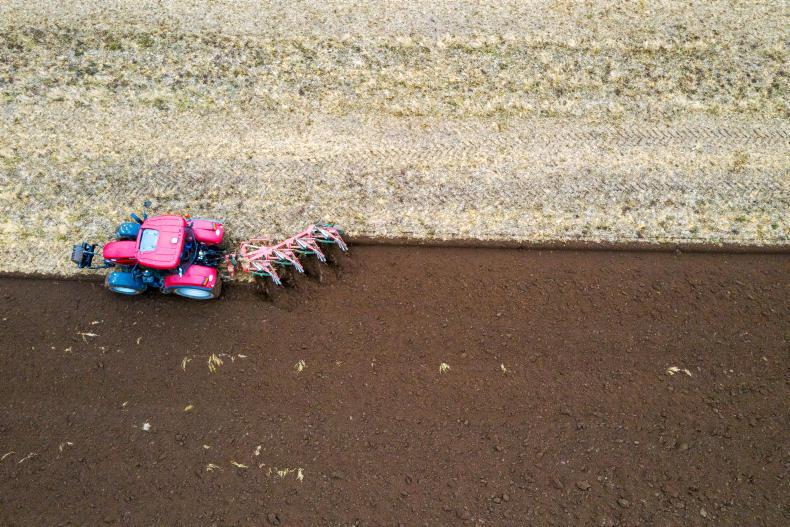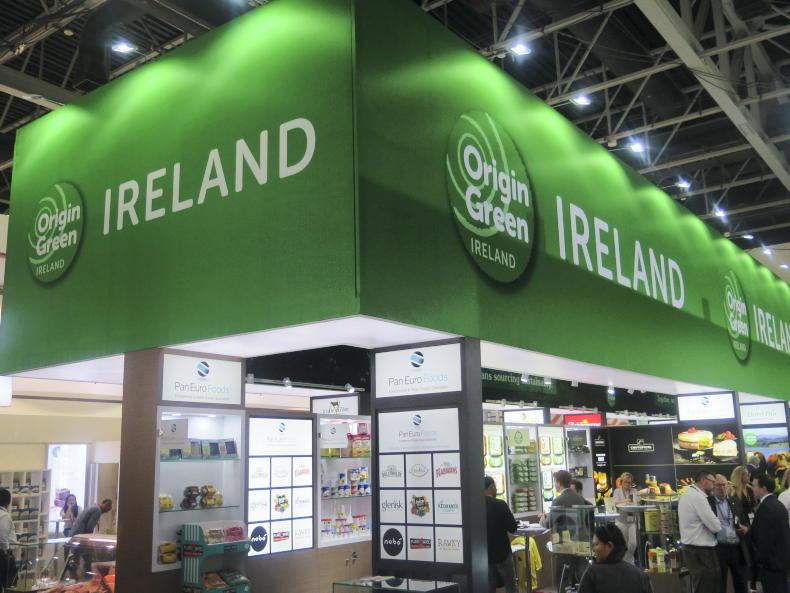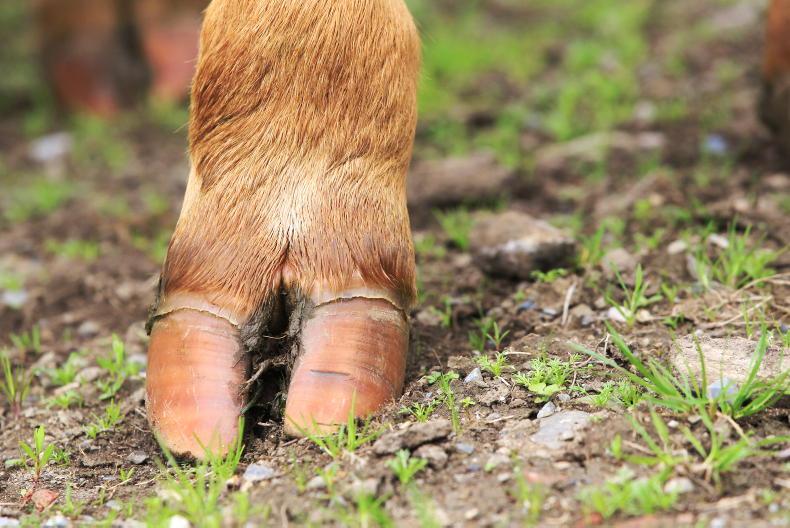Worldwide cases of COVID-19, as of 30 March, have exceeded 715,000 and there have been over 33,000 deaths, according to the WHO.
A true global pandemic.
Moreover, as we are all learning, the nature of the COVID-19 virus is that it is fundamentally non-discriminating.
As is the case with public health, so it is with economic health: the size and scale of companies impacted by the disease and associated lockdowns ranges from micro companies to firms employing hundreds of thousands across multinational jurisdictions.
There continues to be an outdated obsession with making business supports available to SMEs and smaller companies only.
Despite very supportive Government statements suggesting that all of the financial support – defined by a "whatever it takes" approach – will be provided, there continues to be an outdated obsession with making business supports available to small and medium enterprises (SMEs) only.
The Irish Government has very properly announced lockdowns that mean closures for large and small companies in a non-discriminatory manner.
But as set out below, currently the main credit schemes operating under the COVID-19 business emergency heading are confined to SMEs only, under strict interpretation of EU state aid constraints.
Credit Guarantee Scheme for COVID-19 FAQs:
The purpose of the SME Credit Guarantee Scheme is to encourage additional lending to SMEs by offering a partial Government guarantee (currently 80%) to banks against losses on qualifying loans to eligible SMEs.
Yet as of 24 March, German state supports for companies large and small were approved by the Commission.
European Commission executive vice-president Margrethe Vestager, in charge of competition policy, said: “The scheme is open to all companies. It enables the granting of guarantees on loans at favourable terms to help businesses cover immediate working capital and investment needs.
“Today, we approved a German scheme for guarantees on loans for companies affected by the coronavirus outbreak. The objective of the measures is to provide companies with liquidity to help safeguard jobs and continue their activities in these difficult times.
“We continue working with member states to ensure that national support measures can be put in place as quickly and effectively as possible, in line with EU rules.”
Wide-ranging
The quid pro quo in business continuity terms in response to COVID-19 surely has to be that business supports must be as wide-ranging as the public and economic health impacts demand.
Export markets
To understand this evolving impact on food and drinks manufactures while removing outdated constraints of a real “whatever it takes” approach, perhaps a review of the profile of the Irish food industry is instructive.
The fundamental characteristic of the overall sector is export orientation.
Approximately 80%, on average, of all food and drink production here is exported (almost €14bn in 2019), with up to 95% in some categories in the dairy and meat sectors.
While there are 750 companies operating across the sector, according to the CSO, in the dairy and meat sectors, all processing is carried out by companies categorised as non-SMEs, ie large companies.
Across the consumer food/drinks sector, the figure is 80% of output processed by large companies.
The food consumption impact of COVID-19 across Europe saw an initial surge in demand from the retail/supermarket sector and a complete collapse in restaurant, bars, cafes, ie the food service sector.
In most EU member states where they operate in a range of food self-sufficiency from 80% to 120%, there has been a broad balancing of this demand, with ongoing retail buying compensating for up to 70% of the loss in food service typically.
Collapse
However for Irish food companies, domestic demand accounts for about 10-20% of output, so retail compensation is clearly not balancing the collapse in food service and export markets.
So for Irish food businesses to keep operating, which means continuing to feed Irish consumers and continuing to take the output of all of the 100,000+ farms and employ all of the 50,000 people in manufacturing, financial supports to manage the 80%+ of output that has no current buyer are required.
Retail compensation is clearly not balancing the collapse in food service and export markets
The credit solutions, ranging from loans to extended working capital to export credit insurance and even grant aid, must reflect the reality of the export-based, large company-dominated food industry model that exists in Ireland and has served the economy well.
In that context, as the chart below shows, Irish economy spending by the food sector is over five times greater than any other sector in the Irish economy, including the multinational sectors.
Both the ongoing ability to maintain the supply of food to our citizens, and the economic recovery, needs Irish economy expenditure to resume as strongly as possible, when possible. That requires the agri food sector to secure the credit and other financial supports it requires.
Read more
Beef and sheep price update: factory prices lose further ground
Coronavirus: Tullamore Show cancelled
Calf exports drop on weaker Dutch demand
Worldwide cases of COVID-19, as of 30 March, have exceeded 715,000 and there have been over 33,000 deaths, according to the WHO.
A true global pandemic.
Moreover, as we are all learning, the nature of the COVID-19 virus is that it is fundamentally non-discriminating.
As is the case with public health, so it is with economic health: the size and scale of companies impacted by the disease and associated lockdowns ranges from micro companies to firms employing hundreds of thousands across multinational jurisdictions.
There continues to be an outdated obsession with making business supports available to SMEs and smaller companies only.
Despite very supportive Government statements suggesting that all of the financial support – defined by a "whatever it takes" approach – will be provided, there continues to be an outdated obsession with making business supports available to small and medium enterprises (SMEs) only.
The Irish Government has very properly announced lockdowns that mean closures for large and small companies in a non-discriminatory manner.
But as set out below, currently the main credit schemes operating under the COVID-19 business emergency heading are confined to SMEs only, under strict interpretation of EU state aid constraints.
Credit Guarantee Scheme for COVID-19 FAQs:
The purpose of the SME Credit Guarantee Scheme is to encourage additional lending to SMEs by offering a partial Government guarantee (currently 80%) to banks against losses on qualifying loans to eligible SMEs.
Yet as of 24 March, German state supports for companies large and small were approved by the Commission.
European Commission executive vice-president Margrethe Vestager, in charge of competition policy, said: “The scheme is open to all companies. It enables the granting of guarantees on loans at favourable terms to help businesses cover immediate working capital and investment needs.
“Today, we approved a German scheme for guarantees on loans for companies affected by the coronavirus outbreak. The objective of the measures is to provide companies with liquidity to help safeguard jobs and continue their activities in these difficult times.
“We continue working with member states to ensure that national support measures can be put in place as quickly and effectively as possible, in line with EU rules.”
Wide-ranging
The quid pro quo in business continuity terms in response to COVID-19 surely has to be that business supports must be as wide-ranging as the public and economic health impacts demand.
Export markets
To understand this evolving impact on food and drinks manufactures while removing outdated constraints of a real “whatever it takes” approach, perhaps a review of the profile of the Irish food industry is instructive.
The fundamental characteristic of the overall sector is export orientation.
Approximately 80%, on average, of all food and drink production here is exported (almost €14bn in 2019), with up to 95% in some categories in the dairy and meat sectors.
While there are 750 companies operating across the sector, according to the CSO, in the dairy and meat sectors, all processing is carried out by companies categorised as non-SMEs, ie large companies.
Across the consumer food/drinks sector, the figure is 80% of output processed by large companies.
The food consumption impact of COVID-19 across Europe saw an initial surge in demand from the retail/supermarket sector and a complete collapse in restaurant, bars, cafes, ie the food service sector.
In most EU member states where they operate in a range of food self-sufficiency from 80% to 120%, there has been a broad balancing of this demand, with ongoing retail buying compensating for up to 70% of the loss in food service typically.
Collapse
However for Irish food companies, domestic demand accounts for about 10-20% of output, so retail compensation is clearly not balancing the collapse in food service and export markets.
So for Irish food businesses to keep operating, which means continuing to feed Irish consumers and continuing to take the output of all of the 100,000+ farms and employ all of the 50,000 people in manufacturing, financial supports to manage the 80%+ of output that has no current buyer are required.
Retail compensation is clearly not balancing the collapse in food service and export markets
The credit solutions, ranging from loans to extended working capital to export credit insurance and even grant aid, must reflect the reality of the export-based, large company-dominated food industry model that exists in Ireland and has served the economy well.
In that context, as the chart below shows, Irish economy spending by the food sector is over five times greater than any other sector in the Irish economy, including the multinational sectors.
Both the ongoing ability to maintain the supply of food to our citizens, and the economic recovery, needs Irish economy expenditure to resume as strongly as possible, when possible. That requires the agri food sector to secure the credit and other financial supports it requires.
Read more
Beef and sheep price update: factory prices lose further ground
Coronavirus: Tullamore Show cancelled
Calf exports drop on weaker Dutch demand










SHARING OPTIONS